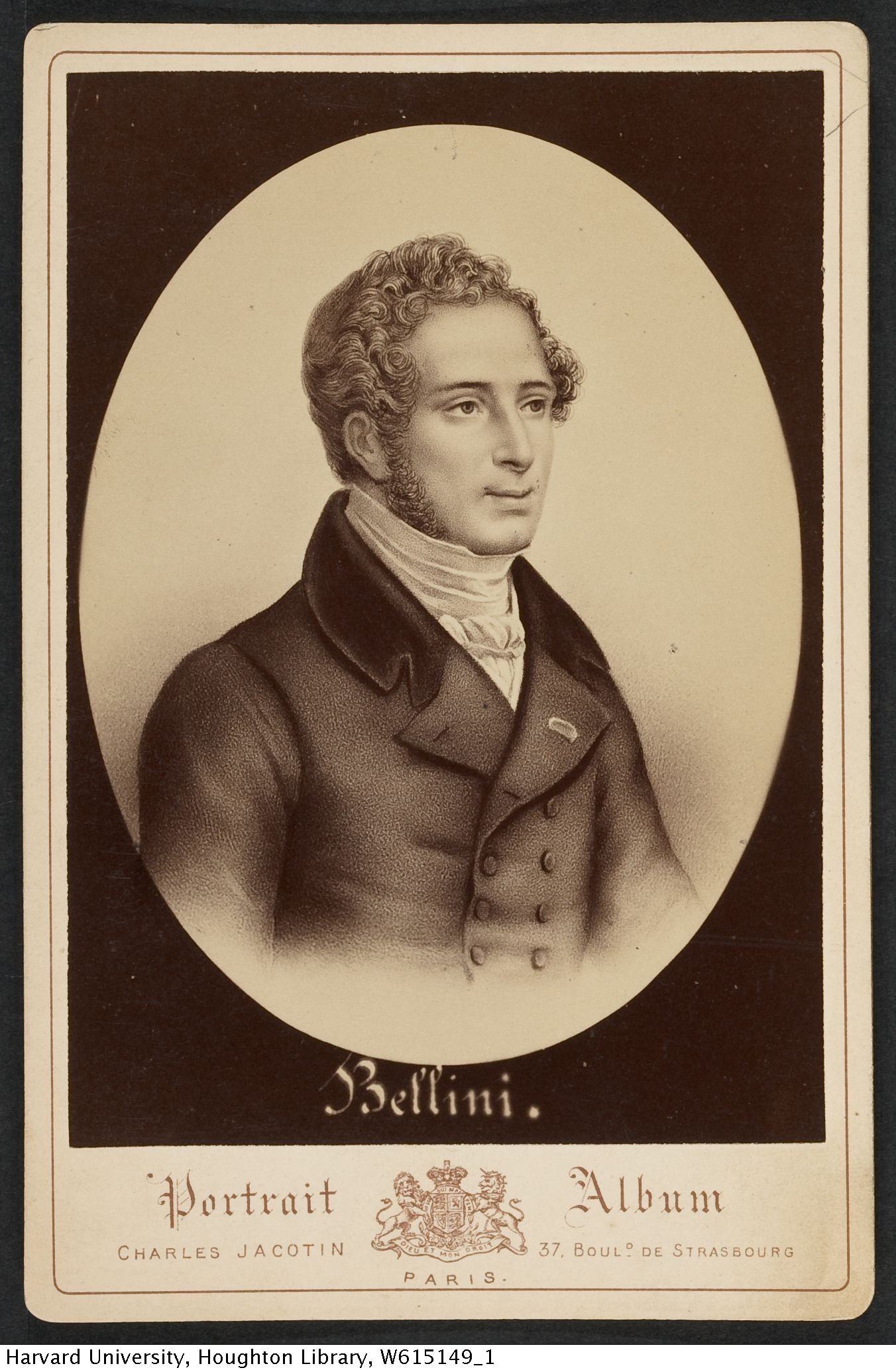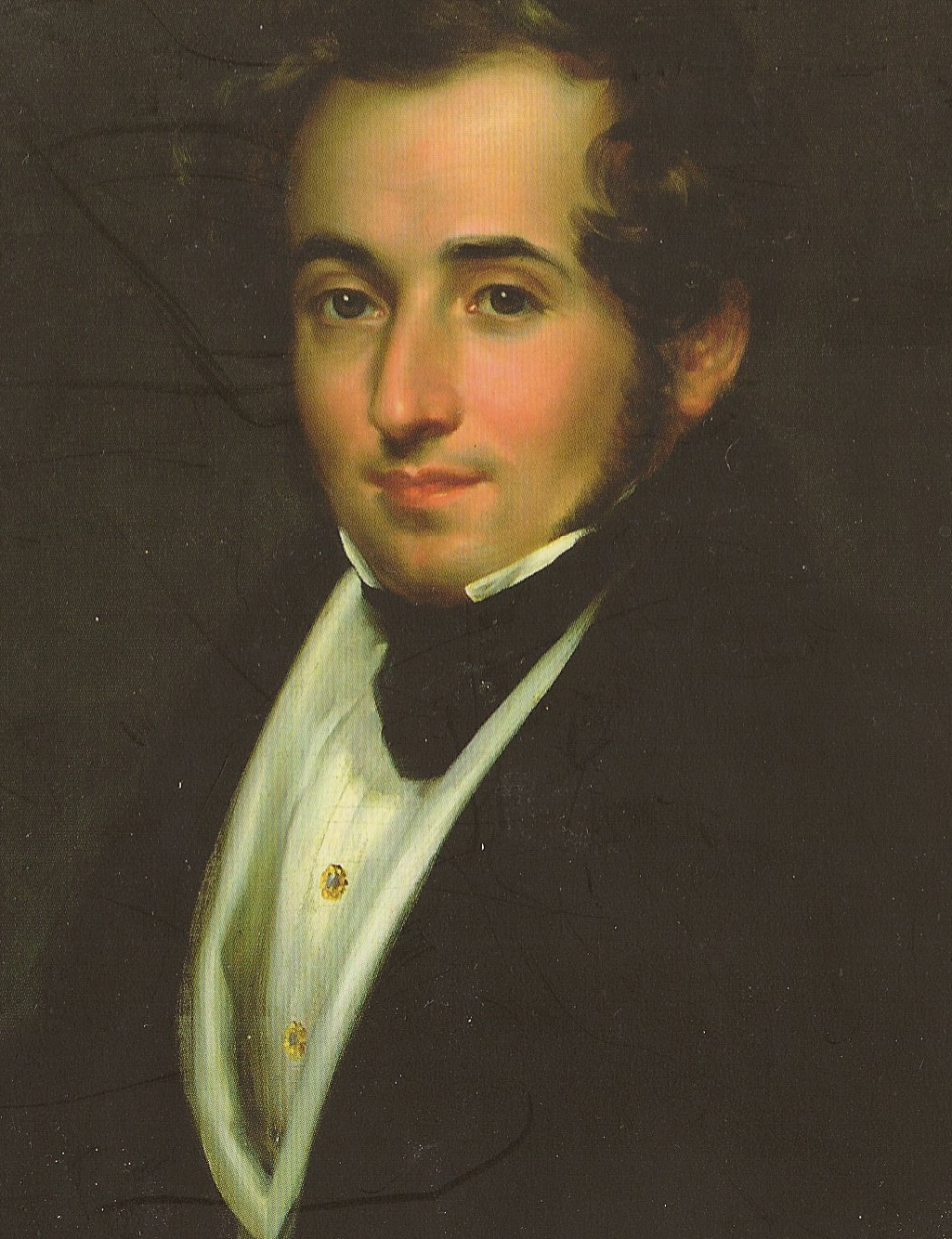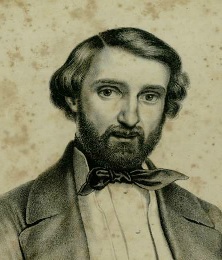|
Dino Dondi
Dino Dondi (10 July 1925 – 3 March 2007) was an Italian operatic baritone. Life Like many Bolognese, Dondi had a passion for opera and after studying singing as an autodidact, he met a master who recognised his vocal talent. At the beginning of the 1950s, after singing in theatres in Emilia, including Bologna, Dondi moved to Milan and in 1954 made his debut at the Teatro Nuovo in Verdis' ''Rigoletto''. Shortly afterwards, he was called by La Scala, where he sang, among other operas, in '' Iphigénie en Tauride'' by Christoph Willibald Gluck under the direction of Luchino Visconti, with Maria Callas and the direction of Nino Sanzogno (1957), and in Verdi's '' Macbeth'', conducted by Thomas Schippers (1958). He married Irène Companeez, contralto. Dondi died in the French department of Basse-Terre at the age of 81. Recordings * 1955: ''Don Sebastiano'' ( Gaetano Donizetti), Carlo Maria Giulini conducting, role: Abaialdo * 1957: ''Iphigénie en Tauride'' (Christoph ... [...More Info...] [...Related Items...] OR: [Wikipedia] [Google] [Baidu] |
Baritone
A baritone is a type of classical male singing voice whose vocal range lies between the bass and the tenor voice-types. The term originates from the Greek (), meaning "heavy sounding". Composers typically write music for this voice in the range from the second F below middle C to the F above middle C (i.e. F2–F4) in choral music, and from the second A below middle C to the A above middle C (A2 to A4) in operatic music, but the range can extend at either end. Subtypes of baritone include the baryton-Martin baritone (light baritone), lyric baritone, ''Kavalierbariton'', Verdi baritone, dramatic baritone, ''baryton-noble'' baritone, and the bass-baritone. History The first use of the term "baritone" emerged as ''baritonans'', late in the 15th century, usually in French sacred polyphonic music. At this early stage it was frequently used as the lowest of the voices (including the bass), but in 17th-century Italy the term was all-encompassing and used to describe the averag ... [...More Info...] [...Related Items...] OR: [Wikipedia] [Google] [Baidu] |
Ildebrando Pizzetti
Ildebrando Pizzetti (20 September 1880 – 13 February 1968) was an Italian composer of classical music, Musicology, musicologist, and Music criticism, music critic. Biography Pizzetti was born in Parma in 1880. He was part of the "Generation of 1880" along with Ottorino Respighi, Gian Francesco Malipiero, and Alfredo Casella. They were among the first Italian composers in some time whose primary contributions were not in opera. The instrumental and ''a cappella'' traditions had never died in Italian music and had produced, for instance, the string quartets of Antonio Scontrino (1850–1922) and the works of Respighi's teacher Giuseppe Martucci; but with the "Generation of 1880" these traditions became stronger. Ildebrando Pizzetti was the son of Odoardo Pizzetti, a pianist and piano teacher who was his son's first teacher. At first Pizzetti seemed headed for a career as a playwright—he had written several plays, two of which had been produced—before he decided in 1895 on ... [...More Info...] [...Related Items...] OR: [Wikipedia] [Google] [Baidu] |
2007 Deaths
This is a list of deaths of notable people, organised by year. New deaths articles are added to their respective month (e.g., Deaths in ) and then linked here. 2022 2021 2020 2019 2018 2017 2016 2015 2014 2013 2012 2011 2010 2009 2008 2007 2006 2005 2004 2003 2002 2001 2000 1999 1998 1997 1996 1995 1994 1993 1992 1991 1990 1989 1988 1987 See also * Lists of deaths by day The following pages, corresponding to the Gregorian calendar, list the historical events, births, deaths, and holidays and observances of the specified day of the year: Footnotes See also * Leap year * List of calendars * List of non-standard ... * Deaths by year {{DEFAULTSORT:deaths by year ... [...More Info...] [...Related Items...] OR: [Wikipedia] [Google] [Baidu] |
1925 Births
Nineteen or 19 may refer to: * 19 (number), the natural number following 18 and preceding 20 * one of the years 19 BC, AD 19, 1919, 2019 Films * ''19'' (film), a 2001 Japanese film * ''Nineteen'' (film), a 1987 science fiction film Music * 19 (band), a Japanese pop music duo Albums * ''19'' (Adele album), 2008 * ''19'', a 2003 album by Alsou * ''19'', a 2006 album by Evan Yo * ''19'', a 2018 album by MHD * ''19'', one half of the double album ''63/19'' by Kool A.D. * ''Number Nineteen'', a 1971 album by American jazz pianist Mal Waldron * ''XIX'' (EP), a 2019 EP by 1the9 Songs * "19" (song), a 1985 song by British musician Paul Hardcastle. * "Nineteen", a song by Bad4Good from the 1992 album '' Refugee'' * "Nineteen", a song by Karma to Burn from the 2001 album ''Almost Heathen''. * "Nineteen" (song), a 2007 song by American singer Billy Ray Cyrus. * "Nineteen", a song by Tegan and Sara from the 2007 album '' The Con''. * "XIX" (song), a 2014 song by Slip ... [...More Info...] [...Related Items...] OR: [Wikipedia] [Google] [Baidu] |
Italian Baritones
Italian(s) may refer to: * Anything of, from, or related to the people of Italy over the centuries ** Italians, an ethnic group or simply a citizen of the Italian Republic or Italian Kingdom ** Italian language, a Romance language *** Regional Italian, regional variants of the Italian language ** Languages of Italy, languages and dialects spoken in Italy ** Italian culture, cultural features of Italy ** Italian cuisine, traditional foods ** Folklore of Italy, the folklore and urban legends of Italy ** Mythology of Italy, traditional religion and beliefs Other uses * Italian dressing, a vinaigrette-type salad dressing or marinade * Italian or Italian-A, alternative names for the Ping-Pong virus, an extinct computer virus See also * * * Italia (other) * Italic (other) * Italo (other) * The Italian (other) * Italian people (other) Italian people may refer to: * in terms of ethnicity: all ethnic Italians, in and outside of Italy * in t ... [...More Info...] [...Related Items...] OR: [Wikipedia] [Google] [Baidu] |
Umberto Giordano
Umberto Menotti Maria Giordano (28 August 186712 November 1948) was an Italian composer, mainly of operas. He was born in Foggia in Apulia, southern Italy, and studied under Paolo Serrao at the Conservatoire of Naples. His first opera, ''Marina'', was written for a competition promoted by the music publishers Casa Sonzogno for the best one-act opera, remembered today because it marked the beginning of Italian ''verismo''. The winner was Mascagni's ''Cavalleria rusticana''. Giordano, the youngest contestant, was placed sixth among seventy-three entries with his ''Marina'', a work which generated enough interest for Sonzogno to commission the staging of an opera based on it in the 1891–92 season. The result was ''Mala vita'', a gritty ''verismo'' opera about a labourer who vows to reform a prostitute if he is cured of his tuberculosis. This work caused something of a scandal when performed at the Teatro Argentina, Rome, in February 1892. It played successfully in Vienna, Pragu ... [...More Info...] [...Related Items...] OR: [Wikipedia] [Google] [Baidu] |
Andrea Chénier
''Andrea Chénier'' () is a verismo opera in four acts by Umberto Giordano, set to an Italian libretto by Luigi Illica, and first performed on 28 March 1896 at La Scala, Milan. The story is based loosely on the life of the French poet André Chénier (1762–1794), who was executed during the French Revolution. The character Carlo Gérard is partly based on Jean-Lambert Tallien, a leading figure in the Revolution. It remains popular with audiences, though less frequently performed than in the first half of the 20th century. One reason for its survival in the repertoire is the lyrical-dramatic music provided by Giordano for the tenor lead, which gives a talented singer opportunities to demonstrate his skills and flaunt his voice. Giuseppe Borgatti's triumph in the title role at the first performance immediately propelled him to the front rank of Italian opera singers. He went on to become Italy's greatest Wagnerian tenor, rather than a verismo-opera specialist. Performance ... [...More Info...] [...Related Items...] OR: [Wikipedia] [Google] [Baidu] |
I Puritani
' (''The Puritans'') is an 1835 opera by Vincenzo Bellini. It was originally written in two acts and later changed to three acts on the advice of Gioachino Rossini, with whom the young composer had become friends. The music was set to a libretto by Count Carlo Pepoli, an Italian émigré poet whom Bellini had met at a salon run by the exile Princess Belgiojoso, which became a meeting place for many Italian revolutionaries. The opera is based on ''Têtes Rondes et Cavaliers'' (''Roundheads and Cavaliers''), a historical play written by Jacques-François Ancelot and Joseph Xavier Saintine and set in the English Civil War, which some sources state was based on Walter Scott's 1816 novel ''Old Mortality,'' while others state that there is no connection. When Bellini arrived in Paris in mid-August 1833, he had intended to stay only about three weeks, the main aim being to continue the negotiations with the Paris Opéra which had begun on his way to London a few months earlier. Howe ... [...More Info...] [...Related Items...] OR: [Wikipedia] [Google] [Baidu] |
Antonino Votto
Antonino Votto, sometimes spelled Antonio Votto, (30 October 1896 – 9 September 1985) was an Italian operatic conductor and vocal coach. Votto developed an extensive discography with the Teatro alla Scala in Milan during the 1950s, when EMI produced the bulk of its studio recordings featuring Maria Callas. Though Votto was a dependable conductor (and the teacher of Riccardo Muti), critics frequently faulted his recordings for their lack of emotional immediacy. This may have been an occupational hazard of working in the studio, as his live sets with Callas, including a ''Norma'' (December 1955, La Scala) and ''La sonnambula'' (1957, Cologne) are considered to be great performances. Among his pupils was soprano Claudia Pinza Bozzolla. Commercial discography * Ponchielli: ''La Gioconda'' (Callas, Barbieri, Amadini, Poggi, Silveri, Neri; 1952) Cetra * Puccini: ''La bohème'' (Callas, Moffo, di Stefano, Panerai, Zaccaria; 1956) EMI * Verdi: ''Un ballo in maschera'' (Callas, Rat ... [...More Info...] [...Related Items...] OR: [Wikipedia] [Google] [Baidu] |
Beatrice Di Tenda
''Beatrice di Tenda'' is a tragic opera in two acts by Vincenzo Bellini, from a libretto by Felice Romani, after the play of the same name by . Initially, a play by Alexandre Dumas was chosen as the subject for the opera, but Bellini had reservations about its suitability. After he and Giuditta Pasta (for whom the opera was to be written) had together seen the ballet based on the very different play, Tedaldi-Fores' ''Beatrice Tenda'', in Milan in October 1832, she became enthusiastic about the subject and the composer set about persuading Romani that this was a good idea. Romani, who had his own concerns, the principal one being the close parallels with the story told in Donizetti's ''Anna Bolena'', an opera which had established that composer's success in 1830. Against his better judgment, he finally agreed, although he failed to provide verses for many months. Although unsuccessful at its premiere in Venice in 1833, Bellini felt that he had counteracted the horror of its story ... [...More Info...] [...Related Items...] OR: [Wikipedia] [Google] [Baidu] |
Nabucco
''Nabucco'' (, short for Nabucodonosor ; en, " Nebuchadnezzar") is an Italian-language opera in four acts composed in 1841 by Giuseppe Verdi to an Italian libretto by Temistocle Solera. The libretto is based on the biblical books of 2 Kings, Jeremiah, Lamentations and Daniel and the 1836 play by Auguste Anicet-Bourgeois and Francis Cornu. However, Antonio Cortese's ballet adaptation of the play (with its necessary simplifications), given at La Scala in 1836, was a more important source for Solera than the play itself. Under its original name of ''Nabucodonosor'', the opera was first performed at La Scala in Milan on 9 March 1842. ''Nabucco'' is the opera that is considered to have permanently established Verdi's reputation as a composer. He commented that "this is the opera with which my artistic career really begins. And though I had many difficulties to fight against, it is certain that ''Nabucco'' was born under a lucky star." The opera follows the plight of the Jews as t ... [...More Info...] [...Related Items...] OR: [Wikipedia] [Google] [Baidu] |
Alfredo Catalani
Alfredo Catalani (19 June 1854 – 7 August 1893) was an Italian operatic composer. He is best remembered for his operas ''Loreley'' (1890) and ''La Wally'' (1892). ''La Wally'' was composed to a libretto by Luigi Illica, and features Catalani's most famous aria "Ebben? Ne andrò lontana." This aria, sung by American soprano Wilhelmenia Fernandez, was at the heart of Jean-Jacques Beineix's 1981 film ''Diva''. Catalani's other operas were much less successful. Life and career Born in Lucca, Catalani came from a musical family. He was trained at the Milan Conservatory, where his teachers included Antonio Bazzini. Despite the growing influence of the ''verismo'' style of opera during the 1880s and early 1890s, Catalani chose to compose in a more traditional manner, which had traces of Wagner in it. As a result, his operas (''La Wally'' excepted) have largely lost their place in the modern repertoire, even compared to those of Massenet and Puccini, whose style his own periodically re ... [...More Info...] [...Related Items...] OR: [Wikipedia] [Google] [Baidu] |

_-_Archivio_Storico_Ricordi_FOTO002672_(cropped).jpg)






